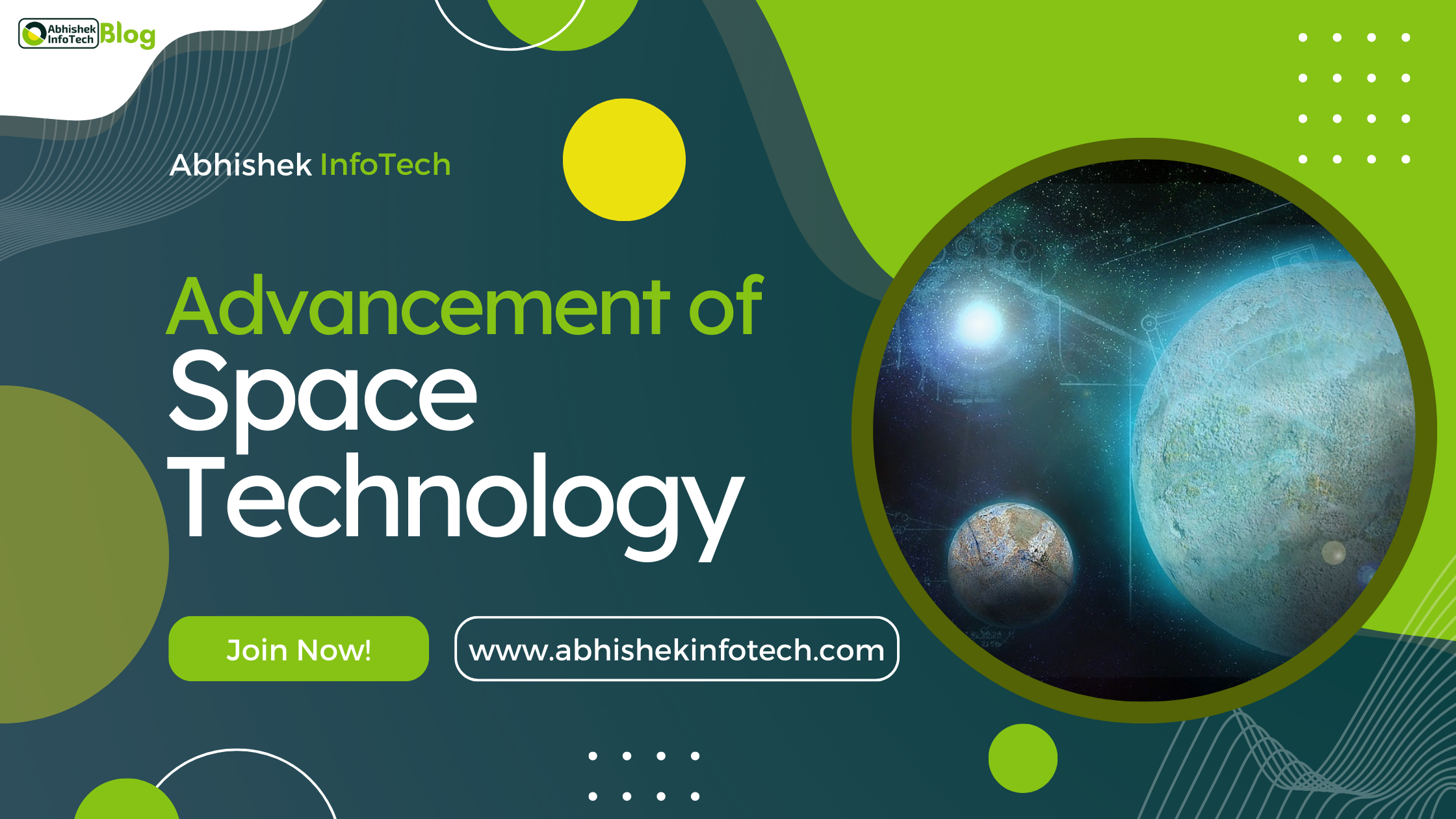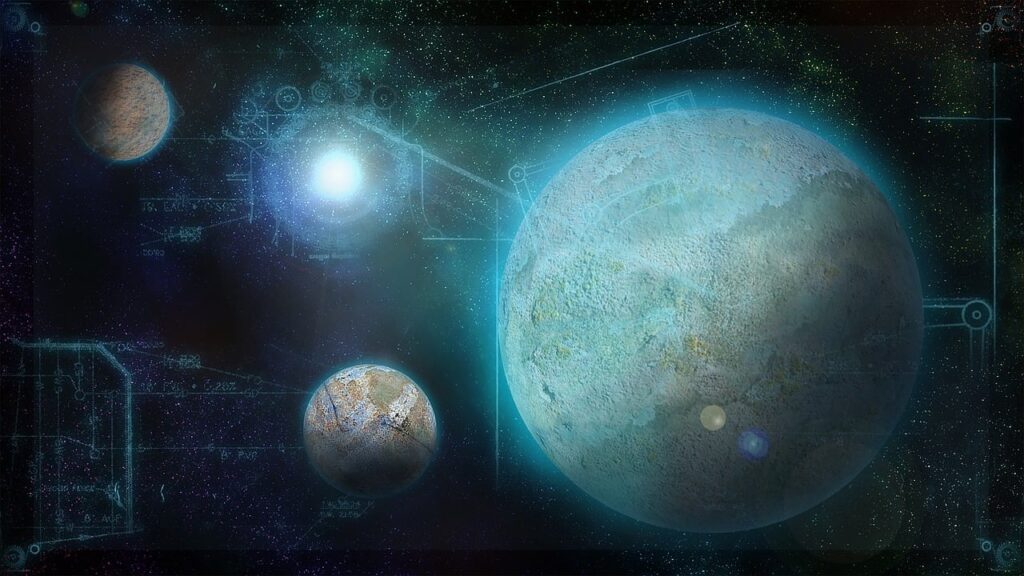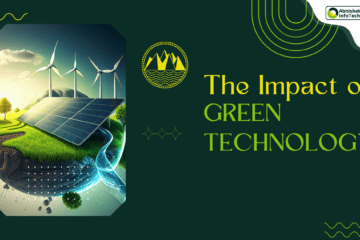How Space Technology is Changing Our World (for the Better)

The Advancement of Space Technology
For many years, human curiosity and ingenuity have been led by space technology. Our exploration of space and the technology that make it possible have advanced at an astounding rate, starting with the momentous moon landing in 1969 and continuing with the deployment of powerful satellites circling the Earth. We will explore the incredible developments in satellite technology and space exploration in this blog article. We will also look at how these extraterrestrial technologies have a big impact on life on Earth.
The vast expanse of outer space has always fascinated humanity, beckoning us to explore its mysteries. Over the years, space technology has evolved exponentially, enabling us to venture into the cosmos and develop satellite systems that have revolutionized life on Earth. In this blog, we will delve into the remarkable advancements in space exploration and satellite technology, and how these innovations have benefited us right here on our home planet.
Space Exploration: From Dreams to Reality
Space exploration has always captured the imagination of humanity. It represents our innate desire to explore the unknown, to push boundaries, and to expand our knowledge. Over the years, advancements in space technology have allowed us to turn these dreams into reality.
- Robotic Exploration: One of the most significant advancements in space exploration is the use of robotic spacecraft. These uncrewed missions have allowed us to explore distant planets, asteroids, and comets. For instance, the Mars rovers, such as Curiosity and Perseverance, have provided us with invaluable insights into the Martian environment and the possibility of past life on the Red Planet.
- Human Spaceflight: While robotic missions are crucial, human spaceflight continues to be a driving force behind space exploration. The International Space Station (ISS) stands as a testament to international collaboration and a platform for scientific research. The experience gained from living and working in space is invaluable for future missions to Mars and beyond.
Advancements in Space Exploration
- Rovers on Mars and Beyond Space exploration have reached unprecedented heights with the deployment of rovers on distant planets. The Mars rovers, such as Curiosity and Perseverance, have provided us with invaluable data about the Martian terrain, climate, and the possibility of past life. These rovers are equipped with cutting-edge instruments, including cameras, spectrometers, and drill systems, enabling them to analyze rock samples and send high-resolution images back to Earth. The information gathered by these rovers not only fuels scientific curiosity but also lays the foundation for potential human missions to Mars in the future. Moreover, the technologies developed for these missions, such as autonomous navigation and communication systems, have applications on Earth, including in autonomous vehicles and remote communication networks.
- Asteroid and Comet Missions NASA’s OSIRIS-REx and Japan’s Hayabusa2 missions have demonstrated our ability to rendezvous with and collect samples from distant celestial bodies. These missions are essential for understanding the early solar system and assessing potential threats from near-Earth objects (NEOs). On Earth, the knowledge gained from these missions can be used to develop strategies for asteroid deflection, ensuring the safety of our planet from potential impact events. The technology used for precise navigation and sample collection has also paved the way for advancements in robotic surgery and autonomous medical procedures.
- International Collaboration in Space The International Space Station (ISS) stands as a symbol of international cooperation in space exploration. Astronauts from various countries live and work together aboard the ISS, conducting experiments that benefit humanity as a whole. Space agencies worldwide collaborate on these projects, sharing knowledge, expertise, and resources. These collaborative efforts extend to satellite launches, space telescopes, and planetary missions. The spirit of cooperation in space exploration serves as a blueprint for addressing global challenges on Earth, such as climate change and pandemics.
Satellite Technology: Revolutionizing Our World
Satellites are the unsung heroes of the space technology realm. They have become an integral part of our daily lives, revolutionizing communication, navigation, weather forecasting, and more.
- Communications: Communication satellites, like the ones in geostationary orbit, enable global connectivity. They facilitate everything from phone calls and internet browsing to television broadcasts. The way we communicate and share information has been transformed by these orbiting giants.
- Earth Observation: Satellites equipped with advanced imaging technology allow us to monitor our planet’s health. From tracking deforestation and climate change to aiding disaster management and urban planning, these satellites have far-reaching applications.
- Navigation: Global Navigation Satellite Systems (GNSS), including GPS, have made navigation more precise and accessible. These systems are essential not only for getting directions but also for applications in agriculture, transportation, and disaster response.
- Scientific Research: Satellites play a pivotal role in scientific research. They are instrumental in studying climate patterns, ocean currents, and atmospheric conditions. Additionally, they help astronomers explore the cosmos by observing distant celestial objects.
Advancements in Satellite Technology
- Miniaturization and CubeSats Traditional satellites used to be massive and expensive to build and launch. However, the advent of CubeSats, small and standardized satellites, has revolutionized the satellite industry. These miniature satellites are cost-effective and can be deployed in constellations, providing a wide range of applications, from Earth observation to global internet coverage. CubeSats have democratized access to space, allowing universities, startups, and developing countries to participate in space-based research and services. Earth benefits from CubeSats through improved weather forecasting, disaster monitoring, and communication networks in remote areas.
- Earth Observation Satellites Earth observation satellites equipped with advanced sensors and imaging technology have transformed our understanding of our planet. They monitor changes in climate, weather patterns, and environmental conditions, helping us make informed decisions about resource management, disaster response, and conservation efforts. These satellites play a crucial role in mitigating the effects of climate change by providing essential data for climate modeling and environmental monitoring. For instance, they track deforestation, monitor sea level rise, and aid in disaster management by providing real-time information during hurricanes, wildfires, and earthquakes.
- Global Positioning System (GPS) GPS technology, initially developed for military purposes, has become an integral part of our daily lives. It provides accurate positioning and timing information that powers navigation systems in vehicles, smartphones, and countless other applications. GPS has revolutionized transportation, logistics, agriculture, and even personal fitness tracking. Its precision allows for more efficient routes, reducing fuel consumption and emissions. Moreover, it enhances safety by enabling emergency services to locate individuals in distress quickly.
Space Technologies Benefiting Life on Earth
The advancements in space technology not only inspire awe but also bring tangible benefits to life on Earth. Here are some ways space technologies have a positive impact on our planet:
- Environmental Monitoring: Satellites provide vital data for monitoring and mitigating environmental issues. They help us track deforestation, assess the health of oceans, monitor air quality, and study the effects of climate change. This information empowers policymakers and scientists to make informed decisions to protect our planet.
- Disaster Management: During natural disasters like hurricanes, wildfires, and earthquakes, space technologies play a crucial role. Satellite imagery assists in assessing damage, coordinating rescue efforts, and providing early warnings to communities at risk.
- Precision Agriculture: Precision agriculture relies on satellite data to optimize farming practices. Farmers can use this technology to monitor soil moisture, crop health, and weather conditions, resulting in increased crop yields and reduced environmental impact.
- Telemedicine: Remote and underserved areas around the world benefit from telemedicine made possible by satellite communications. Doctors can consult with patients and provide medical advice even in remote regions lacking traditional healthcare infrastructure.
- Navigation and Transportation: GPS and other navigation systems have revolutionized transportation. They enhance safety, optimize logistics, and reduce fuel consumption, leading to more efficient and sustainable mobility.
- Scientific Discoveries: Space missions not only expand our knowledge of the universe but also lead to technological breakthroughs. For example, the development of lightweight materials, energy-efficient systems, and water purification technologies used in space missions has practical applications on Earth.

Benefits of Space Technology on Earth
- Communication Revolution The development of satellite-based communication systems has connected the world in ways once deemed impossible. Satellites in geostationary orbit provide global coverage for television, internet, and telephone services, enabling instantaneous communication across continents. This connectivity has transformed industries such as telemedicine, e-learning, and remote work, making it possible for people to access essential services and education from virtually anywhere on Earth.
- Environmental Sustainability Space technology has played a pivotal role in monitoring and addressing environmental challenges. Satellites continuously track deforestation, monitor air and water quality, and assess the impact of climate change on ecosystems. This information empowers governments and organizations to make data-driven decisions to combat deforestation, reduce pollution, and develop sustainable land-use practices. It is instrumental in preserving biodiversity and mitigating the effects of climate change.
- Disaster Management Space technology aids in disaster management by providing early warning systems and real-time data during emergencies. Earthquakes, hurricanes, wildfires, and floods can be monitored and responded to more effectively with satellite imagery and communication systems. Timely information enables emergency responders to plan and execute rescue and relief operations efficiently, ultimately saving lives and minimizing damage.
- Precision Agriculture Agriculture has benefited immensely from space technology. Satellites provide farmers with data on soil moisture, crop health, and weather patterns, allowing for precise and efficient farming practices. Precision agriculture reduces water and fertilizer usage, minimizes waste, and increases crop yields. This not only contributes to food security but also reduces the environmental impact of agriculture.
Overview of Space Technology
Space technology has come a long way, transforming our dreams of exploring the cosmos into reality. Through robotic missions and human spaceflight, we continue to push the boundaries of our knowledge. Moreover, satellites have revolutionized how we live, work, and interact with our planet. From communication to disaster management, these orbiting marvels have become indispensable.
Perhaps the most significant aspect of space technology is how it benefits life on Earth. It helps us monitor and protect our environment, improves healthcare access, enhances agriculture, and makes transportation safer and more efficient. As we look to the future, space technology will undoubtedly continue to enrich our lives, foster innovation, and pave the way for even more remarkable discoveries both in space and on our home planet.
Factors of Space Technology
Space technology has come a long way, expanding our horizons and bringing countless benefits to life on Earth. From advancements in space exploration, enabling us to explore distant planets, to the transformative impact of satellite technology on communication, environmental sustainability, disaster management, and agriculture, the innovations born from space endeavors touch nearly every aspect of our lives.
As we continue to push the boundaries of space exploration, it is clear that the knowledge and technologies developed for these missions will continue to find new and innovative applications here on our home planet, making the investment in space technology one of the most promising and beneficial endeavors for humanity.
Read This Also 👉 Fiverr Affiliate Program. How to earn $1000 per month with Fiverr Affiliate?
Watch Video 📺 👉 How to Earn Money Online? Create a Fiverr Buyer and Seller Account | Abhishek InfoTech



